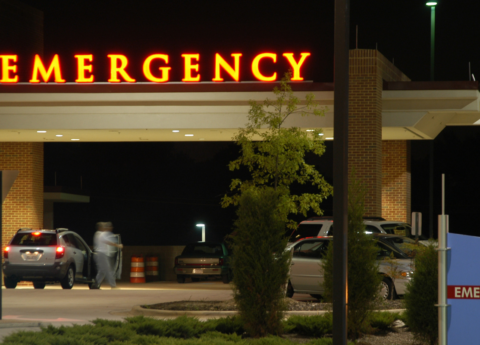Intro:
Good afternoon, my name is Dustin Pugel and I’m a research and policy associate with the Kentucky Center for Economic Policy, a think tank that seeks to improve the quality of life for all Kentuckians through better public policies.
Communities thrive when they have a strong foundation made up of things like good education, safe streets, and affordable, quality healthcare. The Affordable Care Act (ACA) has empowered Kentucky to bring healthcare to half a million of our most vulnerable, protect ourselves from harmful insurance practices, strengthen our healthcare system and boost our economy. There are so many reasons not to move backward on the progress we’ve made.
I want to briefly run down what experts believe a repeal of the ACA would mean for the commonwealth. Many people forget, but it was originally called the “Patient Protection and Affordable Care Act,” so I think it’s helpful to talk about what repeal would mean in these terms:
- What kinds of affordable care are in jeopardy,
- What patient protections are poised to be lost,
- And finally, how those changes will hurt our economy, jobs and state budget.
Affordable Care:
In considering a repeal’s effect on affordable care, first and foremost, an estimated 486,000 Kentuckians would lose insurance coverage. That loss of insurance coverage is a tripling of the number of uninsured in Kentucky. This decline would come from people losing Medicaid and federal insurance subsidies, people no longer being required to be insured (known as the individual mandate) and the individual insurance market entering into what is called a death spiral.
Because a repeal would disproportionately harm states that expanded Medicaid and saw large decreases in their uninsured, Kentucky is among the states with the most to lose. In fact, we would have the third largest increase in the rate of uninsured in the country.
These same plans to repeal would also result in a huge decline in 2019 federal spending in the commonwealth on Medicaid expansion and insurance policy subsidies. Between 2019 and 2028 Kentucky would receive nearly $50 billion less in federal dollars. This federal money injected into our economy has resulted in large employment gains in the healthcare sector and steep declines in the amount of money healthcare providers spend on uninsured patients, called charity or uncompensated care. Nationally, the Urban Institute expects there to be a $1.1 trillion increase in demand for uncompensated care between 2019 and 2028 if repeal moves forward.
Patient Protections:
When it comes to the protections we would lose as Kentuckians, the healthcare reform law is expansive and complex, but a few critical protections stand out, such as:
1.9 million privately insured Kentuckians as well as 863,000 seniors on Medicare could lose free preventative care like immunizations, blood pressure screenings and cancer screenings.
1.4 million Kentuckians, including children, could see caps placed on the amount an insurer would spend over each person’s lifetime, or even each year — cutting off coverage for the sickest individuals when they most need it.
Women could be charged premiums as high as 57 percent more than men.
All insured Kentuckians could lose protection from being overcharged by insurance companies. Since the ACA was passed, companies have refunded Kentuckians $33.3 million that weren’t needed for administration or care.
The ACA also included a provision that corrects a glitch in Medicare prescription coverage that led to some prescription drugs becoming too expensive. But an ACA repeal would mean disabled and older Kentuckians would pay more for prescription drugs, or else forgo them entirely. The average savings for affected Kentuckians was $1,108 per person in 2015 alone.
One especially popular part of the law is the requirement that insurers not deny coverage to someone with a preexisting condition. One of the biggest problems lawmakers will encounter when attempting to repeal the ACA is that the preexisting conditions provision creates a double bind.
On the one hand, if it is repealed, 1.9 million Kentuckians with conditions like asthma, diabetes, cancer and even pregnancy could see their premiums dramatically increase, or simply be denied insurance coverage all together. On the other hand, if the preexisting coverage protection stays, but the individual mandate is repealed, then insurers will be left with expensive, sick enrollees, while the healthy, inexpensive enrollees leave the market. The end result is what’s called a death spiral, when insurers have to increase costs, so more people pull out because they can’t afford it, until insurance companies decide not to offer individual plans anymore. This would be devastating for the hundreds of thousands of Kentuckians who buy insurance directly from an insurance company.
Economic Ripples:
The billions of federal dollars that have been pumped into Kentucky have had a major impact on our economy. If repeal moves forward and that money suddenly evaporates, every part of the state will feel it.
According to the Commonwealth Fund, of the 45,000 jobs that would be lost in 2019 because of repeal, 38 percent would be in the healthcare sector. The rest would come from construction, real estate, retail, finance and other industries.
Over five years beginning in 2019, Kentucky’s business output would lose nearly $41 billion in value in addition to $24 billion less in federal spending. With such a dramatic drop in our state’s economic activity, the state would see $718 million less in revenue in the midst of a health crisis and a massive pension liability that has already pushed lawmakers to undermine critical state services.
ACA repeal would wreak havoc on Kentucky:
The Affordable Care Act has been a lifeline to Kentuckians who either gained healthcare coverage through the Medicaid expansion and insurance subsidies, or have been protected from harmful practices banned by provisions in the law. Our economy has benefitted from a large influx in federal funds that have boosted job growth and invigorated local economies.
Instead of building on these successes, repealing the ACA would wreak havoc on our healthcare system and reverberate throughout the commonwealth. People would be left without access to needed treatment, healthcare providers would see their revenues shrink and potentially lead them to close their doors, and state government would be forced to further cut vital services as it deals with a smaller state coffer. Congress can and should improve on the ACA, and any public healthcare program, so that more Kentuckians have quality, affordable healthcare, but instead it is tilting full steam toward repeal. Kentucky’s representatives in Washington should be aware of the damage that would cause back home.



